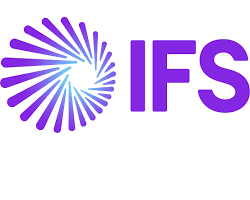
Introduction
In a world where technology is evolving at an unprecedented pace, businesses are constantly searching for ways to remain competitive and relevant. The emergence of artificial intelligence (AI) has undoubtedly revolutionized various industries, offering new possibilities for efficiency, automation, and decision-making. One company that stands out in harnessing the power of AI is IFS, a global enterprise software vendor known for its innovative solutions in the field of Enterprise Resource Planning (ERP), Enterprise Asset Management (EAM), and Field Service Management (FSM). This blog explores the fascinating case of IFS Software as it adapts and thrives in the emerging AI age.
IFS Software: A Brief Overview
Founded in 1983, IFS has a rich history of providing business software solutions that empower companies to optimize their operations and improve their overall performance. The company’s comprehensive suite of products covers areas such as manufacturing, supply chain management, project management, and service management. Over the years, IFS has earned a reputation for its focus on industry-specific solutions, flexibility, and commitment to innovation.
The Role of AI in Modern Business
Artificial Intelligence has become a cornerstone of modern business strategy, promising to enhance decision-making, automate routine tasks, and uncover insights from vast datasets. Machine Learning (ML), a subset of AI, allows systems to learn and improve from experience without being explicitly programmed. This capability is particularly relevant in the context of IFS’s software offerings, where data-driven insights are crucial for efficient resource allocation, predictive maintenance, and optimal service delivery.
The IFS Approach to AI Integration
IFS recognized the transformative potential of AI early on and embarked on a journey to integrate AI capabilities into its software suite. This integration goes beyond simply adding AI as a buzzword; IFS has strived to embed AI functionalities that genuinely solve real-world challenges faced by their clients.
- Predictive Maintenance: For businesses that rely on machinery and equipment, unexpected breakdowns can be costly and disruptive. IFS leverages AI to predict maintenance needs by analyzing historical data, sensor readings, and usage patterns. This proactive approach enables companies to schedule maintenance activities before failures occur, reducing downtime and optimizing resource allocation.
- Supply Chain Optimization: AI-powered algorithms help businesses forecast demand more accurately, allowing them to optimize inventory levels and reduce excess stock. By considering various factors and variables, IFS’s software aids in making smarter decisions related to procurement, warehousing, and distribution.
- Field Service Management: In industries where on-site service is essential, AI assists in scheduling and dispatching field technicians efficiently. Real-time data analysis enables dynamic routing, considering factors like technician availability, location, and traffic conditions, resulting in quicker response times and improved customer satisfaction.
- Intelligent Insights: IFS’s software incorporates AI-driven analytics that provide users with actionable insights. By processing vast amounts of data, AI identifies patterns, trends, and anomalies that would be challenging to discern manually, empowering organizations to make informed decisions.
Challenges and Ethical Considerations
While the integration of AI brings remarkable benefits, it also raises challenges and ethical considerations. Data privacy, bias in algorithms, and the potential displacement of jobs are valid concerns. IFS acknowledges these issues and is committed to implementing AI responsibly, ensuring transparency, fairness, and accountability in its solutions.
Conclusion
As we navigate the ever-evolving landscape of the AI age, companies like IFS demonstrate the potential for technology to revolutionize traditional industries. By intelligently integrating AI into their software suite, IFS empowers businesses to embrace data-driven decision-making, optimize processes, and enhance customer experiences. However, the journey is not without its challenges, and ethical considerations must remain at the forefront of these advancements. The case of IFS Software serves as an inspiring example of how innovation, responsibility, and adaptability can shape the future of business in the emerging AI age